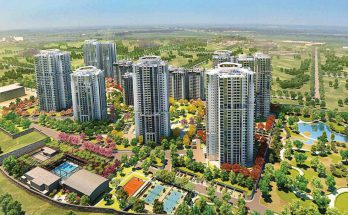In India a house is the biggest purchase most people make in their lifetime. The real estate industry is subject to several forms of tax. Know the taxes on purchase of a flat. Property Purchase Taxes in India, both those paid directly by the home buyer while buying a property. As well as those paid by the developer during construction constitute nearly 35% to 45% of the total cost of the property. Here we try to examine property purchase taxes in India. Buyers should understand that it is mandatory to pay all these taxes.
**Stamp Duty**
The stamp duty has to be paid in order to give legal status to the property purchase transaction. The stamp duty is paid as per the Sale Agreement. The rate of Stamp Duty varies from state to state. In Karnataka, the stamp duty that is payable is 5 percent, in addition there is a 10% surcharge and a 2% cess.
**Registration**
Property Registration is a process that one needs to follow immediately after the purchase of a property and involves recording the contents of a document with a Registering Officer at the Local Registrar Office. Currently the registration charges are ~ 1% of the property value in Bangalore/ Karnataka. There are charges for carrying out a registration and the local office will intimate you about the charges as per your property value. If you want to understand why you need to register the document then here are the reasons
* conservation of evidence
* assurance of title
* publicity of documents
* prevention of fraud.
**VAT (Value Added Tax)**
A few states also levy VAT on under construction property. However, VAT is not payable in case of purchase of a property from the developer if the construction is completed and the builder has received the completion certificate. The rate of VAT in Karnataka is 5 percent on total cost of the property. Every state will have a different value and rules. So you can check with the local builders before making your purchase. As this adds to the total cost of the property.
**Service Tax**
The Service tax is also one of the taxes levied by the Central Government on under construction properties. There are several proposals to remove this tax head from construction but it has not been accepted as yet by the Central Government. The current rate of service tax is 14.5%. Service tax is payable only on the construction component of the price of a flat. To simplify – it is applicable on only 25% of the total cost of a flat and rate of service tax is 14.5%. So the effective rate on the total value of the flat becomes ~3.6%. This is applicable only on properties below one crore. A different slab applies for properties above Rs 1 crore.

**Income Tax**
A home buyer in India is permitted to claim both the interest and principal components of home loan repayments for tax benefits in his annual income tax filing. Government allows for buyers to claim Income Tax deductions if the property is bought partially with a loan availed from financial institutions. Under the I-T Section 80C, the borrower can claim deduction of up to Rs 1.5 lakh. The clause varies for a self-occupied property. Here a benefit of Rs 2 lakh is available under Section 24 (b) of the Income Tax Act for interest on the home loan. If the property is not self-occupied and is given out on rent or left unoccupied. The whole interest which has been paid to the lender for the year can be deducted from income.
The rules change for people who own more than two homes. The first home that is self-occupied isn’t taxed. For those who have two or more houses and these are neither rented/leased nor occupied by the owner, the taxation can get complicated. According to I-T laws, in such cases the owner should take a notional rent value and pay tax on it. There’s a recommended method to calculate the notional value, which takes into consideration the municipal value of the property and the rent control legislation (either of the two) or the prevailing rent in the area for a comparable house. A taxpayer is allowed HRA and a loan deduction both under certain conditions such as if your house is in a different city than that of residence.
The last important point you must be aware of is wealth tax. This you are able to claim exemption for one house. But if you own more than one house then there is a wealth tax under rate of 1 percent is applicable.
**TDS (Tax Deducted at Source)**
For property purchases that are over Rs 50 lakh, buyers need to deduct withholding tax on behalf of the seller. This amounts to about 1% of the agreement value. This sum needs deposits with the Income Tax Department. The buyer needs to furnish information online in Form 26QB.
The purchase of the residential property is one of the most important and long-term decision and there are several tax aspects. So a buyer needs to consider all these before going for a purchase.



